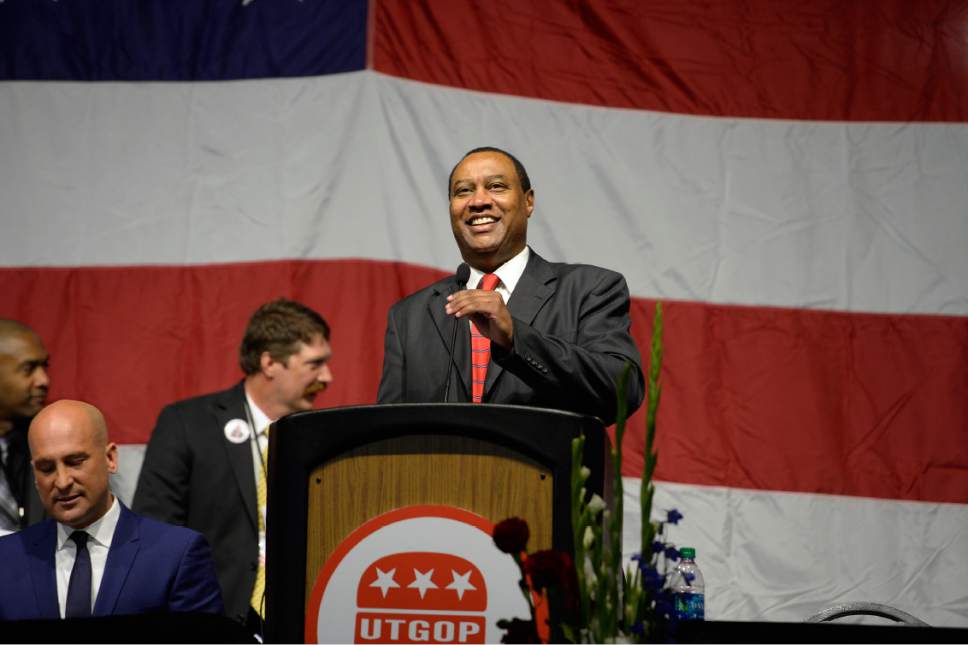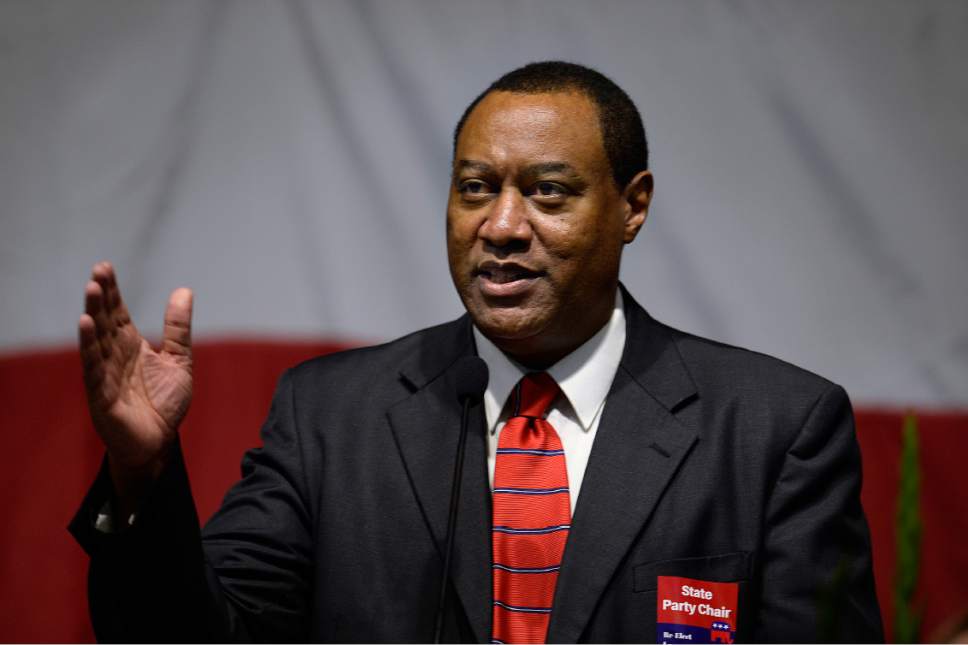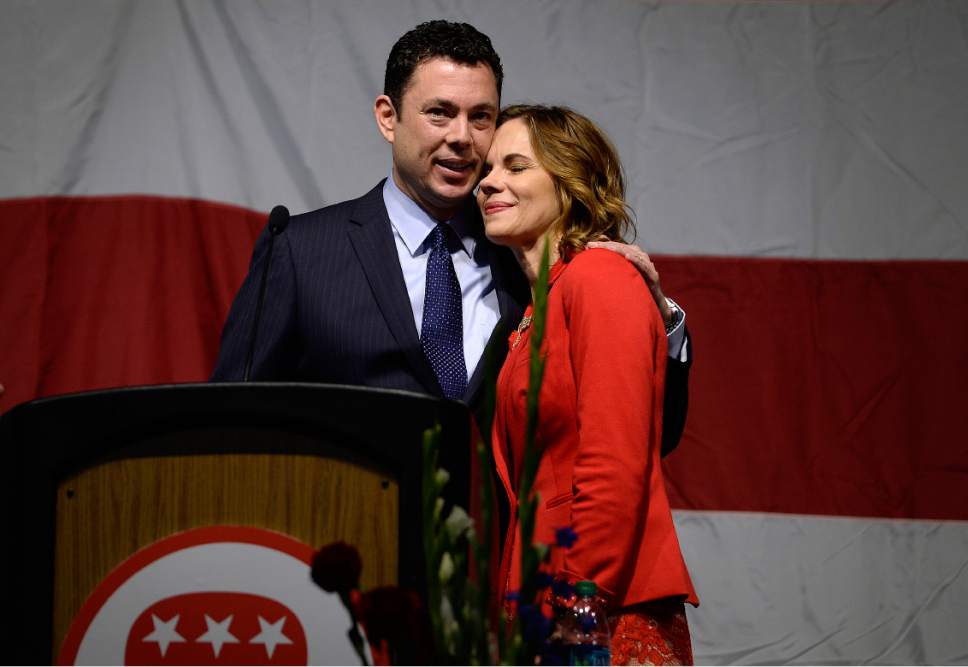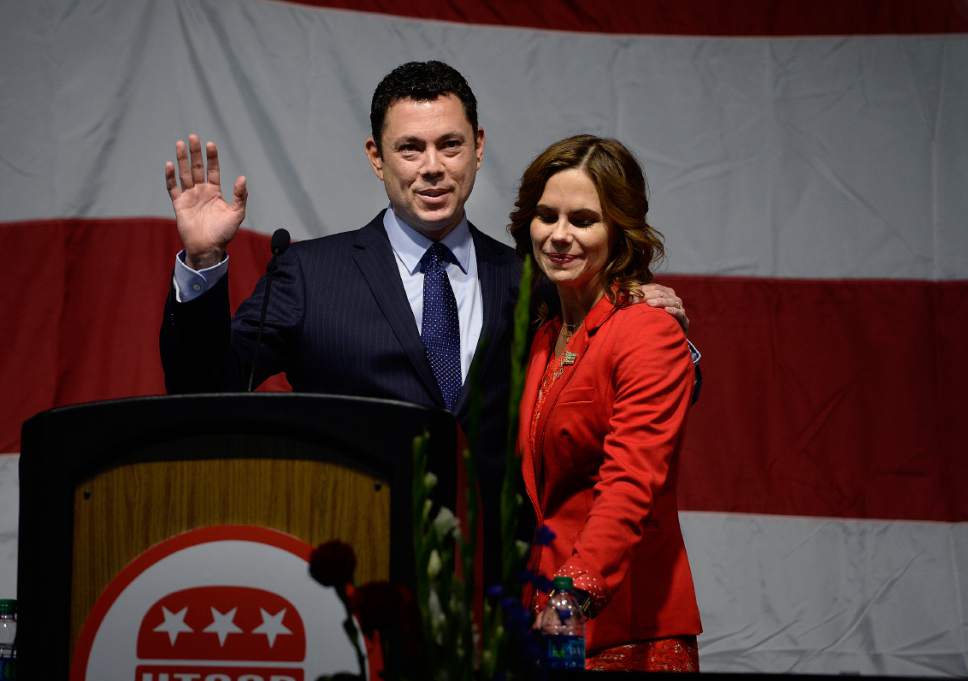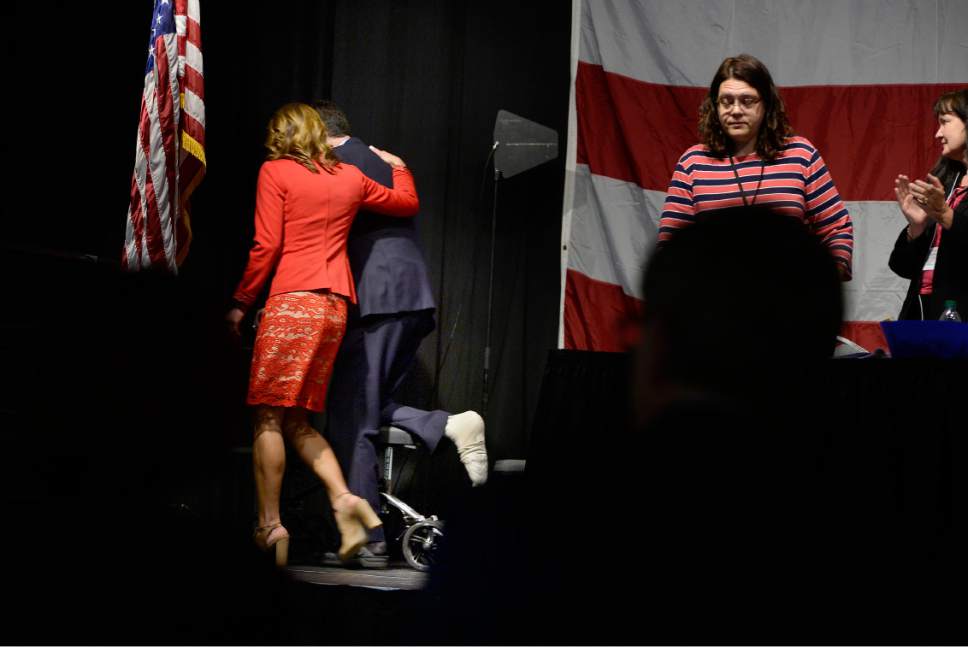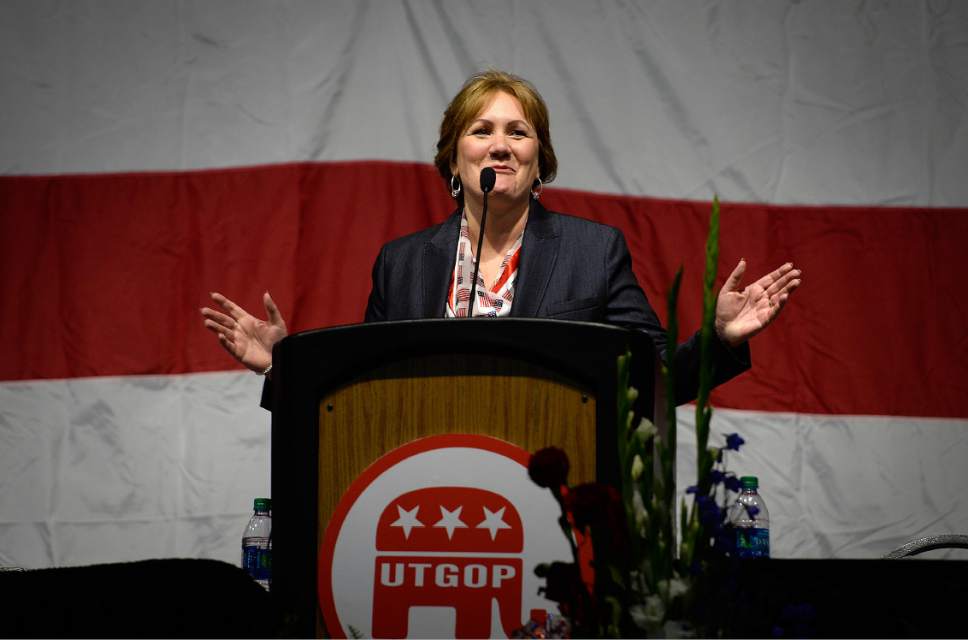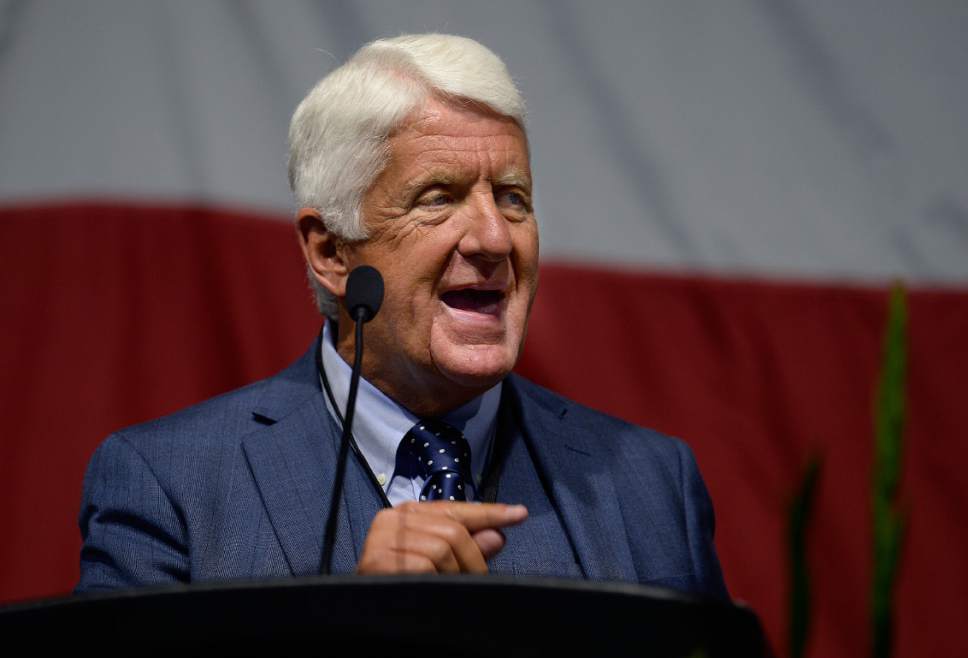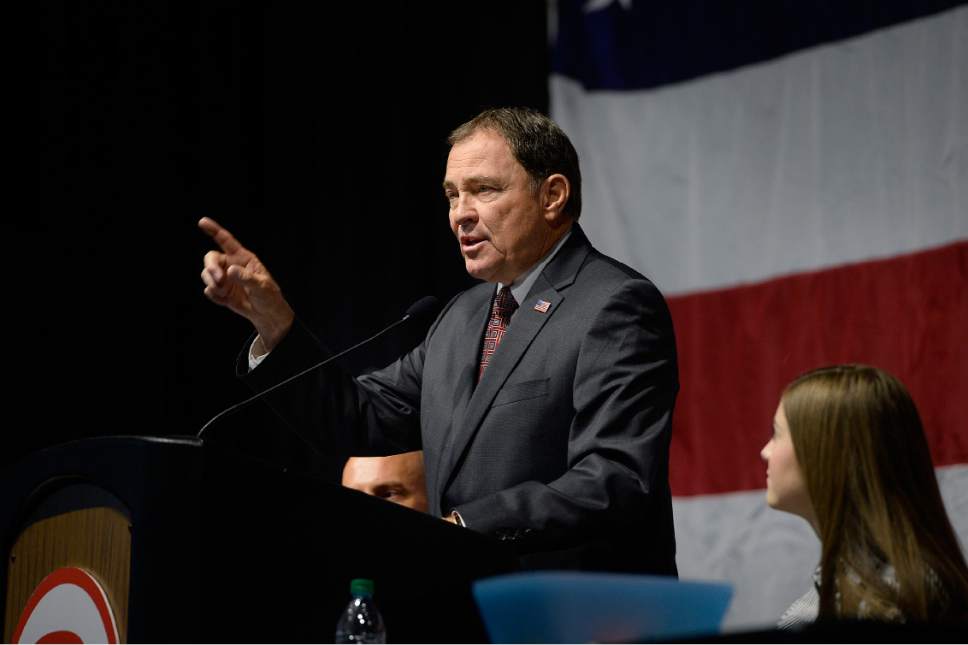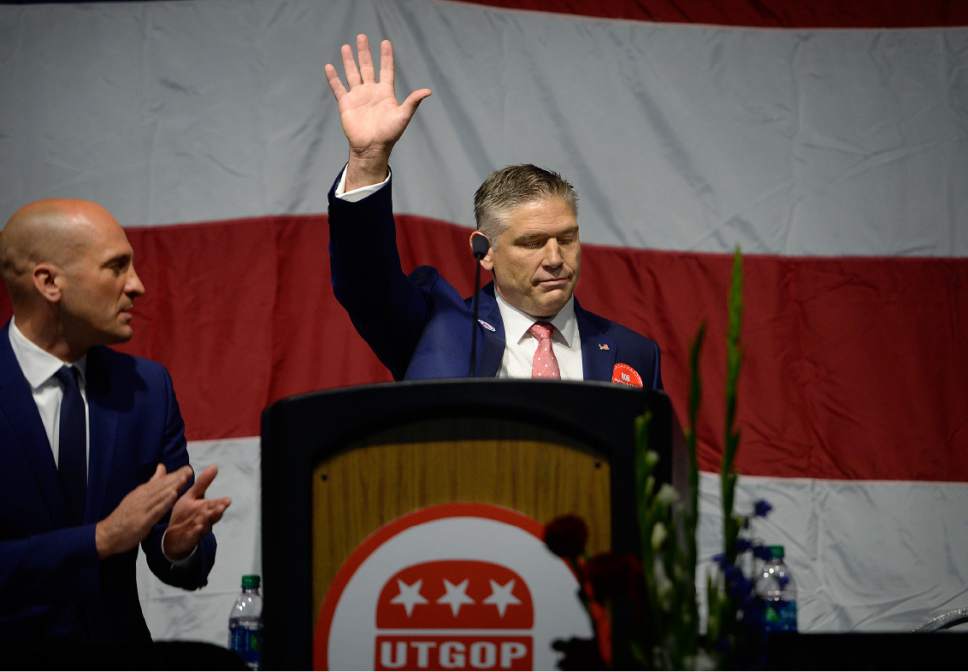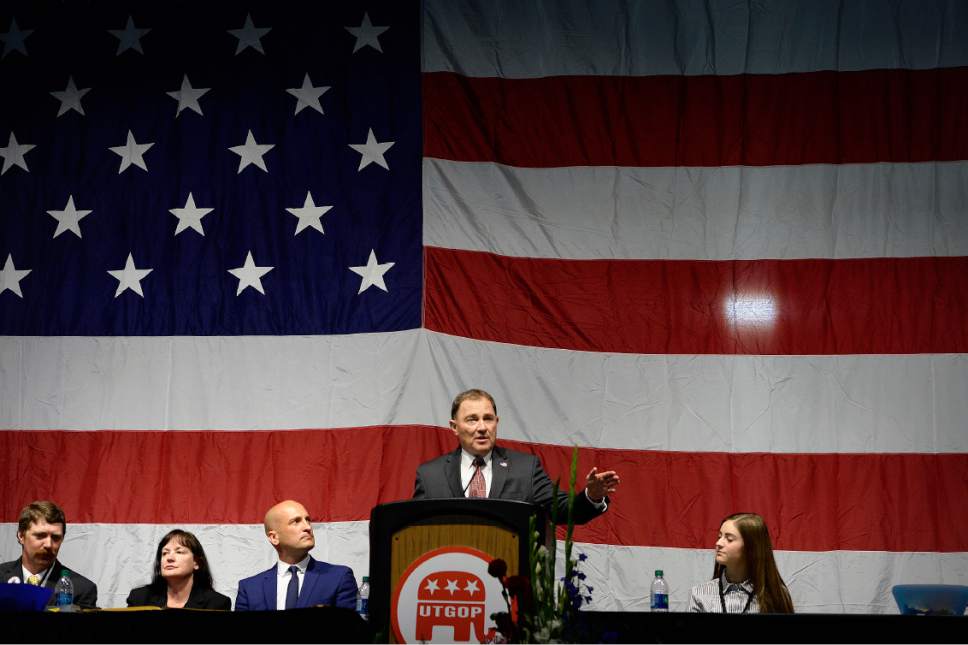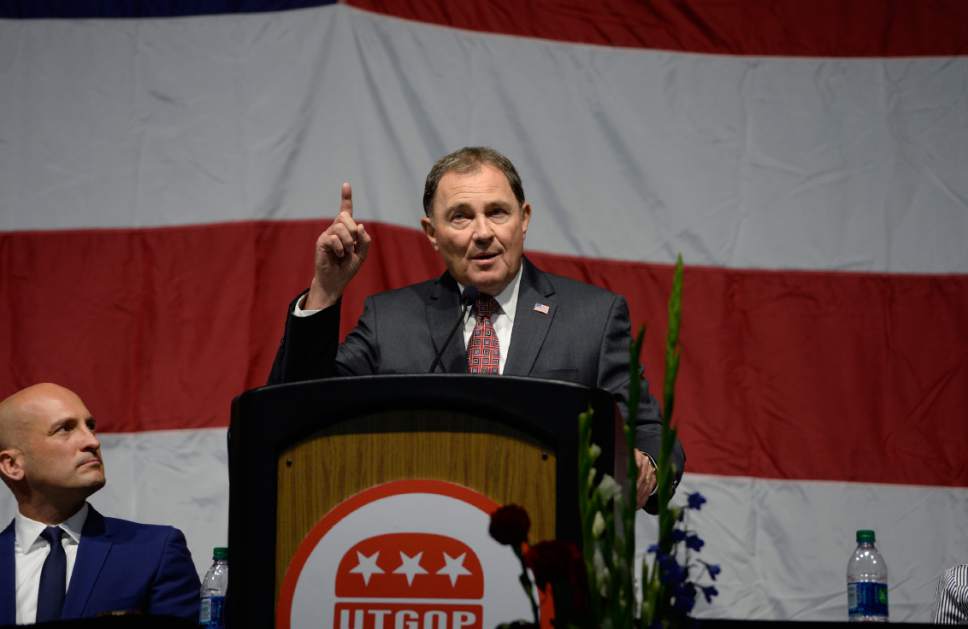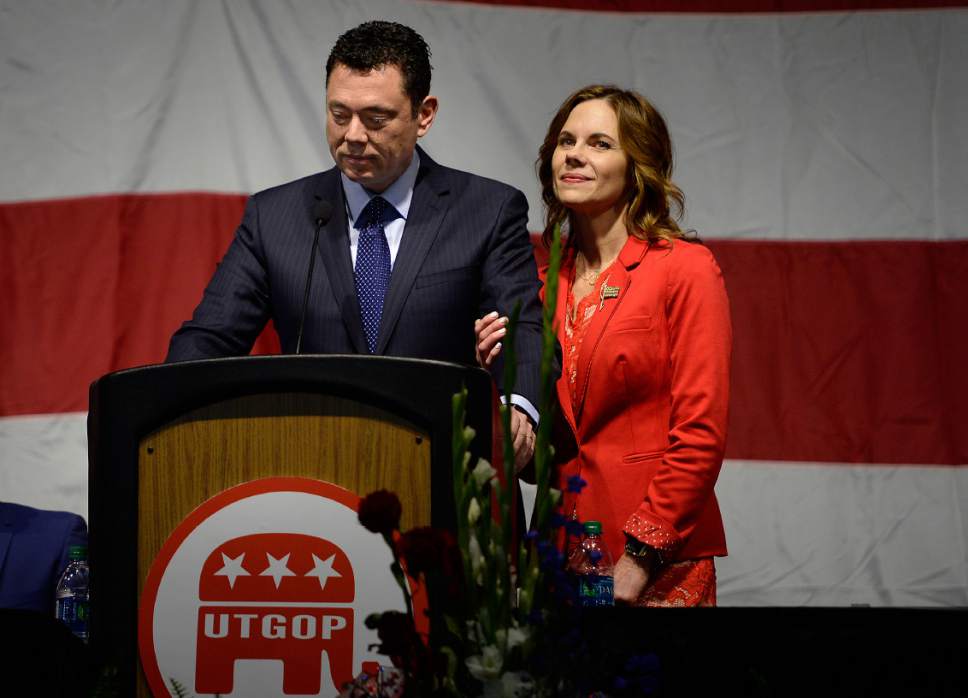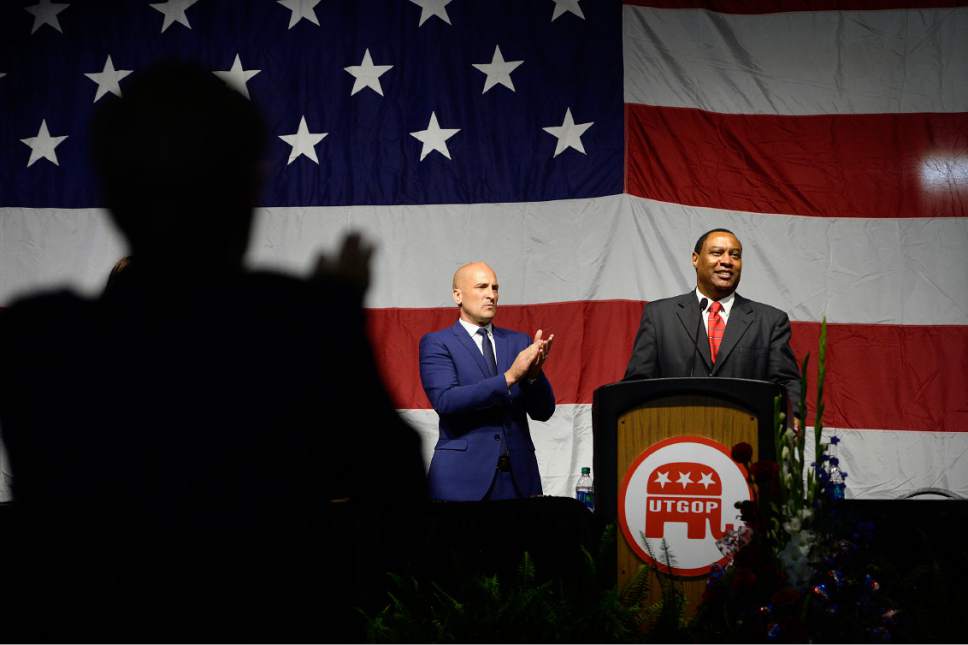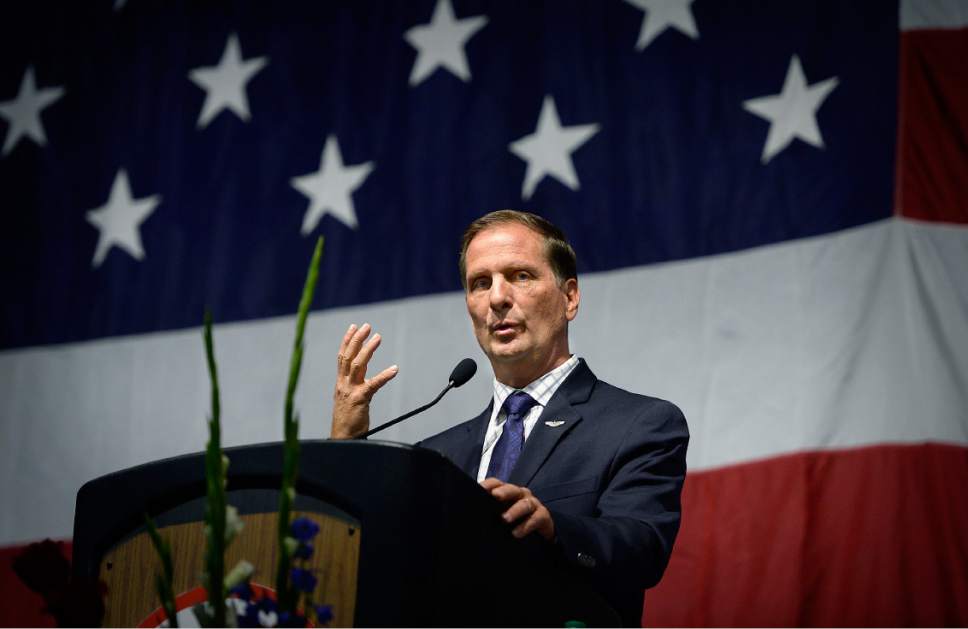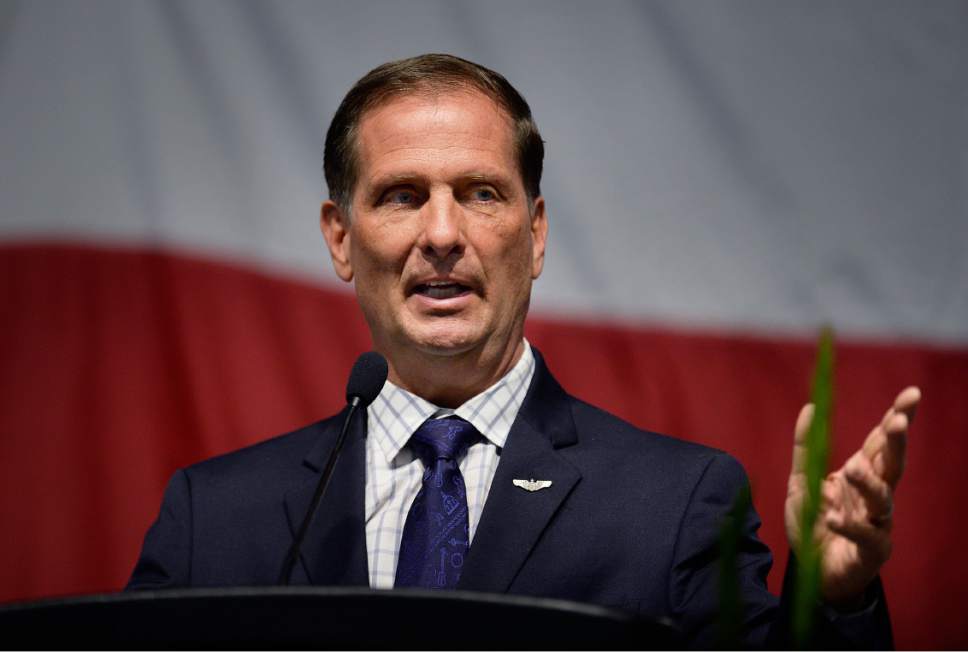This is an archived article that was published on sltrib.com in 2017, and information in the article may be outdated. It is provided only for personal research purposes and may not be reprinted.
Sandy • Amid mounting financial debt and intraparty fights over how to select nominees, the Utah Republican Party dumped its old leadership team Saturday — and elected airline pilot Rob Anderson to take the helm as the new state party chairman.
Anderson, who has been serving as the Davis County GOP chairman, is a bit more centrist and vowed to woo back Republicans who have been leaving the party by the tens of thousands — and to fix the party's debt.
James Evans, who led the party the past four years, was ousted in a first round of balloting after receiving only 27 percent of the vote. Anderson beat Phill Wright, who was the party vice chairman, in the final round by a 56-44 percent margin.
Anderson complained that the state party now has $300,000 in legal debt and an additional $100,000 in operating debt.
"This is a record neither of my opponents can run from," he told delegates at the South Towne Exposition Center in Sandy. "Under my leadership, this malfeasance ends."
The former F-15 fighter pilot and Air Force lieutenant colonel vowed to order an audit of the party's finances within three days.
"It will then be available to you to access, all of it: the good, the bad, the ugly," he told delegates. "This is the only way we can properly diagnose the true plight of the party and begin to right the situation."
Anderson also pledged to develop a budget for the party, which he said it has lacked for the past four years.
He vowed political change, too. Anderson said while he supports the caucus-convention system for choosing party nominees, he disagrees with how past leaders sought to defend that through expensive lawsuits.
Anderson said Evans and others failed to work with big Republican majorities in the Legislature to "stop SB54 before it became a problem." That new law sought to short-circuit a ballot initiative drive that would have dumped the caucus-convention system for an open primary.
SB54 was a compromise that allowed candidates to qualify for the ballot through the caucus-convention system, and/or by collecting signatures.
"Instead of being proactive, they reacted by filing a legal challenge," Anderson said. "The result has been shrinking membership, escalating debt and a tainted Republican reputation."
Anderson said that in the past five months, for example, "we've lost over 36,000 active Republicans to the unaffiliated or inactive rolls." He asserted that many people stopped donating to the party because they feared it would simply go to the lawsuit.
"We will welcome back the disenfranchised conservatives we've lost," he said, vowing to unite the party. Anderson told delegates as he campaigned that the best way to strengthen caucuses would be to increase participation, to ensure they are representative of residents.
Evans had attacked Anderson in his speech to delegates for signing the Count Our Vote petition, which would have dumped the caucus-convention system. Wright, meanwhile, argued that the caucus-convention system needs even stronger defense to help ensure that Republicans-in-name-only do not receive the party's nomination.
After his defeat, Evans gave a short speech to delegates urging party unity — despite a sometimes bruising campaign for chairman.
"In a campaign, things get rough," Evans said. "I am appealing to all of us to unite behind our new chair, Rob Anderson, so that we can continue to be a successful party and get great Republicans elected."
Also at the convention, Rep. Jason Chaffetz gave an emotional farewell — after he announced earlier this week he will resign effective June 30.
He rode a knee cart to the podium due to recent foot surgery and tearfully said, "From the bottom of my heart, I just want to say thank you."
"I am very happy because Hillary Clinton is not the president of the United States," he added, while taking partial credit for that through investigations he led as chairman of the House Oversight committee.
"I helped lead the charge," he said, "to expose to America the email scandal, the Benghazi scandal, the IRS scandal, the Fast and Furious scandal, the problems at the Secret Service."
Party officials announced a special convention for 3rd District delegates June 17 at Timpview High School to vote on a nominee to replace Chaffetz.
Some candidates for that seat were busy handing out swag to delegates Saturday.
State Rep. Deidre Henderson, R-Spanish Fork, put carrying bags into the hands of most delegates. State Rep. Margaret Dayton, R-Provo, was busy handing out doughnuts, candy and copies of the U.S. Constitution. State Rep. Brad Daw, R-Orem, was less into free stuff and handed out literature about his stand and background.
Meanwhile, Chaffetz had a lot of leftover campaign T-shirts, which his volunteers gave out up to five or six at a time to anyone who wanted a souvenir.
Of note, GOP delegates also rejected a resolution seeking to support the use of medical marijuana. It failed by a 70-30 margin.
Delegate D.J. Schanz sponsored the resolution, arguing that could help tens of thousands of Utahns and that "it falls in place with the Republican Party's emphasis on personal liberty and responsibility."
Several delegates, however, argued that the policy violates federal law and that proper dosages for marijuana use have not been developed through medical studies.
Twitter: @LeeHDavidson —
No booing for governor
Some wondered if Utah Republican Convention delegates might boo Gov. Gary Herbert because he has opposed allowing them to choose by themselves a nominee to replace outgoing U.S. Rep. Jason Chaffetz.
They did not. About half the crowd even gave him a standing ovation as his speech began.
Herbert did not address the controversy where he has insisted that voters and not delegates should choose Chaffetz's successor, and spoke only about Utah's economic successes — which brought applause.
One attempted joke by Herbert brought some groans, considering the controversy last year when the governor said he would be "Available Jones" to talk to any big campaign donors.
Herbert said he was in New York City recently, where former Mayor Michael Bloomberg asked to talk about Utah successes. "I made it a rule: If anyone worth over $47 billion wants to talk to me, I want to listen," Herbert said.
Other legislative leaders also chose not to attack Herbert in their convention speeches.


